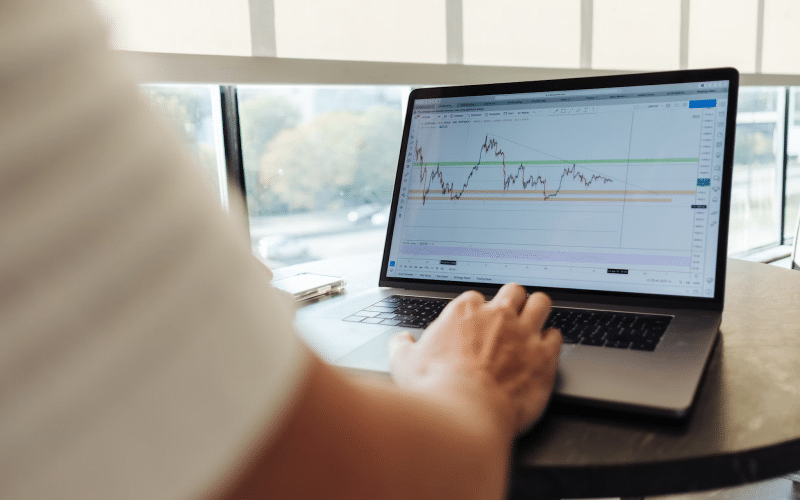While you’re meticulously analyzing charts and executing trades, you might not realize that your brain is often working against you, silently weaving a tapestry of cognitive biases that can distort your decision-making process. As a trader in the UK’s complex markets, you’re likely familiar with the technical and fundamental aspects of trading, but the psychological pitfalls are less tangible and often go unnoticed. You’re not alone if you’ve succumbed to the seductive pull of confirmation bias or been blindsided by overconfidence; these are common traps that ensnare even the most seasoned traders. To navigate the tumultuous waters of the stock market, it’s imperative to recognize and mitigate these psychological biases. The journey to becoming a master of your trading psyche is fraught with challenges, but understanding the intricacies of human behavior can give you an unexpected edge. If you’re curious about which biases might be holding you back and how to counteract them, consider the strategies that have helped others in your position forge a path to consistent performance and emotional equilibrium.
Key Takeaways
- Understanding trading psychology is crucial for success in trading. It involves managing emotions, recognizing your unique trading style, and creating a robust plan aligned with your preferences.
- Emotional biases and cognitive distortions can negatively impact decision-making. Traders should be aware of biases such as overconfidence and loss aversion, as well as cognitive distortions like black-and-white thinking and catastrophizing.
- Rational decision-making in trading requires basing decisions on objective data and analysis, investing in trading education, practicing discipline and patience, and minimizing emotional responses to market changes.
- Building a resilient trader mindset involves developing emotional resilience, fostering a growth mindset, cultivating self-awareness, managing emotions effectively, and learning from both successes and failures.
Understanding Trading Psychology
To effectively navigate the tumultuous waters of the stock market, it’s essential to grasp the intricacies of trading psychology, which serves as the bedrock for decision-making processes and discipline in trading. At the core of this psychological framework is the challenge of managing emotions—a task that can differentiate a successful trader from one who struggles. Fear and greed, the notorious culprits behind impulsive decisions, must be controlled to maintain objectivity in the face of market volatility.
Your individual uniqueness in trading approaches is another critical aspect. No one-size-fits-all strategy exists because personal risk tolerance and financial goals vary. Recognizing and honoring your unique trading style is crucial to developing a healthy mindset that’s resilient against emotional upheavals.
To fortify your trading psyche, it’s vital to create a robust plan that aligns with your individual preferences and to stick to it, even when temptations arise. This includes setting clear goals, establishing risk management parameters, and ensuring continuous self-education to adapt to ever-changing market conditions. For a seamless trading experience, explore the best app to buy stocks UK. By doing so, you’re not just following a plan; you’re engraining a discipline that will sustain your trading career through the inevitable ups and downs of the market.
Identifying Emotional Biases
Understanding your own emotional biases is a pivotal step in refining your trading strategy and sidestepping the pitfalls that can cloud judgment and impede success. Emotional biases such as overconfidence, loss aversion, the sunk-cost fallacy, and confirmation bias can deeply influence your trading decisions, often leading to suboptimal outcomes. Overcoming irrationality in trading isn’t just about knowing these biases exist but actively working to mitigate their impact on your decisions.
Managing impulsive behavior is critical, as it can exacerbate the influence of emotional biases. To do so, you must first identify the emotional triggers that prompt irrational decision-making. For instance, overconfidence might lead you to underestimate risks and overtrade, while loss aversion could cause you to hold onto losing positions for too long, hoping to avoid the pain of realizing a loss.
To counter these biases, develop a disciplined trading plan with predefined entry and exit points, and adhere strictly to it. This approach minimizes the sway of emotions by providing a structured decision-making framework. Moreover, continuous self-reflection and review of your trades can help you recognize patterns in your emotional responses and adjust your strategy accordingly. Leveraging your understanding of emotional biases can be a decisive factor in navigating volatile markets and making more informed, rational trading decisions.
Recognizing Cognitive Distortions
Peeling back the layers of your trading psyche reveals cognitive distortions that can subtly distort your financial decision-making. These distortions are essentially glitches in your thought process, often leading you down a path that strays far from logical and productive reasoning. Recognizing them is your first step towards mental clarity and improved trading performance.
You may unwittingly fall prey to black-and-white thinking, where you see markets in absolute terms: completely bullish or hopelessly bearish. There’s also overgeneralization, where one bad trade leads you to conclude that you’re unfit for trading altogether. Catastrophizing, meanwhile, has you expecting the worst from a market downturn, when, in fact, volatility is a natural aspect of trading.
Challenging irrational thoughts is crucial. When you catch yourself succumbing to these distortions, pause and question the evidence supporting your beliefs. Are you basing your decisions on hard data or a skewed perception of events? Reframing negative thoughts is equally important. Instead of viewing a loss as a failure, consider it a learning opportunity. By addressing these cognitive distortions head-on, you’ll sharpen your decision-making and reduce the emotional biases that often lead traders astray.
Strategies for Rational Decision-Making
Photo By Adam Nowakowski on Unsplash
Having recognized the cognitive distortions that cloud judgment, it’s essential for UK traders to adopt strategies that promote rational decision-making in the markets. Ensuring that your actions are grounded in logic rather than emotion can be the difference between success and failure. Here are three critical strategies to help you stay objective:
- Rely on Data and Analysis: Base your trading decisions on objective information, using quantitative data and technical analysis to guide your actions. This helps to minimize the impact of emotional responses to market changes.
- Invest in Trading Education: Knowledge is power. Utilize trading education resources to understand the markets better and develop a strong trading mindset. Continuous learning equips you with the tools necessary to make informed decisions.
- Practice Discipline and Patience: Stick to your trading plan and strategies, even when temptations arise to deviate based on market noise. Establish clear rules for when to enter and exit trades, and adhere to them rigorously.
Building a Resilient Trader Mindset
To thrive amid the volatility of the UK trading markets, you must develop a resilient mindset, one that can weather the inevitable storms of wins and losses with equal composure. Developing emotional resilience is crucial; it is the bedrock that allows you to handle the emotional rollercoaster of trading without letting it derail your strategy. This resilience doesn’t mean you won’t experience stress or disappointment, but rather that you have the tools to manage these emotions effectively.
A key aspect of building resilience is fostering a growth mindset. You’re not just collecting profits and losses; you’re gathering valuable experience. Every trade offers a lesson, and with a mindset geared towards learning, you’ll translate both successes and failures into knowledge that refines your approach.
Self-awareness is another cornerstone of a resilient trader’s psyche. It empowers you to recognize emotional biases and cognitive distortions that can cloud judgment. By being mindful of these mental traps, you can keep your decision-making process rational and aligned with your trading plan.
Importance of a Trading Plan
While a resilient mindset equips you to handle the emotional aspects of trading, it’s your trading plan that provides the strategic framework essential for navigating the markets effectively. This plan is your roadmap, dictating actions based on predefined criteria and keeping your trading disciplined and systematic. Here are three reasons why a trading plan is crucial:
- Consistency: A trading plan enforces a consistent trading approach, allowing you to measure and replicate success.
- Emotional Control: It helps in managing emotions by providing clear guidelines, reducing the temptation for impulsive decisions.
- Performance Review: Regularly reviewing your trading plan allows for adjusting rules and strategies to align with changing market conditions.
Your trading plan should include risk management techniques to safeguard your capital. These techniques are the bulwarks against the unpredictable tides of the market, protecting you from excessive losses. By setting stop-loss orders, defining risk-reward ratios, and determining position sizes, you can ensure that one bad trade doesn’t capsize your entire portfolio.
Moreover, the dynamic nature of the markets necessitates the continual evaluating and adjusting of your trading rules. This iterative process is not about overhauling your strategy with every market fluctuation, but fine-tuning your approach to maintain its relevance and effectiveness. Remember, a static plan in a dynamic market is a recipe for obsolescence.
In the realm of trading, the ability to navigate social and market pressures is as critical as any technical analysis or strategy. You’re often bombarded with a cacophony of market chatter and the actions of your peers, which can cloud judgment. Managing fear of missing out, or FOMO, is a key challenge. It’s essential to recognize when you’re being swayed by herding behavior, which can lead to irrational decisions and deviation from your trading plan.
Dealing with information overload requires a disciplined approach. Be cautious about trading decisions influenced by rumors or unreliable sources. It’s tempting to react impulsively to news events, but it’s wiser to take a step back and assess their true market impact. Remember, staying focused on your trading plan and risk management strategies is paramount, even when faced with the competitive actions of other traders.
To mitigate social and market pressures, don’t underestimate the value of support and education. Engage with trading communities and resources that provide a buffer against these pressures. They can offer perspective, reduce the sense of isolation, and help maintain objectivity in the face of relentless market and social stimuli.
Cultivating Discipline and Patience
Mastering the trader’s discipline and patience is crucial for steering clear of the emotional whirlpools that can disrupt sound decision-making in the markets. As a trader, you’re constantly bombarded with the need to make quick decisions, but it’s essential to realize that haste often leads to error. Developing self-control and maintaining focus are cornerstones in cultivating these traits.
Consider the following to reinforce your trading psychology:
- Develop a Trading Plan: A structured plan acts as a roadmap, guiding your actions and helping you stick to a strategic approach rather than succumbing to emotional impulses.
- Practice Patience: Patience is key in waiting for the optimal entry and exit points. It ensures you’re acting on logic, not just reacting to market noise or temporary excitement.
- Document Your Trades: A trading journal is a powerful tool for reflection and learning. It helps you recognize patterns in your behavior and adjust your strategy accordingly.
Mastering Emotional Resilience in Trading
Developing emotional resilience is a crucial aspect of mastering trading psychology, especially in the dynamic UK markets. Fear and greed, the arch-nemeses of rational decision-making, often lead to impulsive actions that can derail a trader’s strategy. Emotional resilience involves not eliminating these emotions but managing them effectively. Traders must recognize their emotional triggers, whether it’s overconfidence leading to underestimating risks or loss aversion causing prolonged attachment to losing positions. By identifying these triggers, traders can implement disciplined trading plans that act as a shield against emotional biases, fostering a resilient mindset that withstands the inevitable ups and downs of the market.
The Strategic Importance of a Trading Plan
Photo By Austin Distel on Unsplash
A well-structured trading plan is not just a roadmap; it’s a strategic framework that ensures consistency, emotional control, and adaptability. Traders in the UK markets must understand that a one-size-fits-all approach doesn’t exist. Recognizing and honoring individual trading styles is crucial for crafting a plan aligned with personal preferences. The plan should include risk management techniques like stop-loss orders, risk-reward ratios, and position sizes to protect against excessive losses. Moreover, the dynamic nature of markets requires a continual evaluation of the plan, striking a balance between consistency and adaptability to ensure long-term success.
In the ever-chattering world of trading, the ability to navigate social and market pressures is as critical as technical analysis. Recognizing and mitigating the fear of missing out (FOMO) and avoiding impulsive reactions to market news are paramount. Traders should be cautious about falling prey to peer pressure and outside noise-influenced herding behavior. Engaging with trading communities and reliable resources can provide support, reduce isolation, and help traders maintain objectivity amidst the relentless market stimuli. Successfully navigating social and market pressures contributes to a trader’s ability to stay focused on their plan and risk management strategies.
Conclusion
Mastering the intricacies of trading psychology is an ongoing journey for UK traders. The fusion of emotional resilience, a well-crafted trading plan, and disciplined decision-making is the key to navigating the complex landscape of financial markets. By understanding and addressing emotional biases, recognizing cognitive distortions, and cultivating a growth mindset, traders can fortify their mental resilience.
A strategic trading plan acts as a guiding light, ensuring consistency, emotional control, and adaptability to market changes. Navigating social and market pressures requires vigilance and engagement with supportive communities. In the dynamic UK trading environment, success lies not just in technical expertise but in the harmony of a resilient mindset and a robust strategic approach. As traders continue to refine their psychological skills and adapt their strategies, they pave the way for consistent performance and long-term success in the ever-evolving world of trading.






